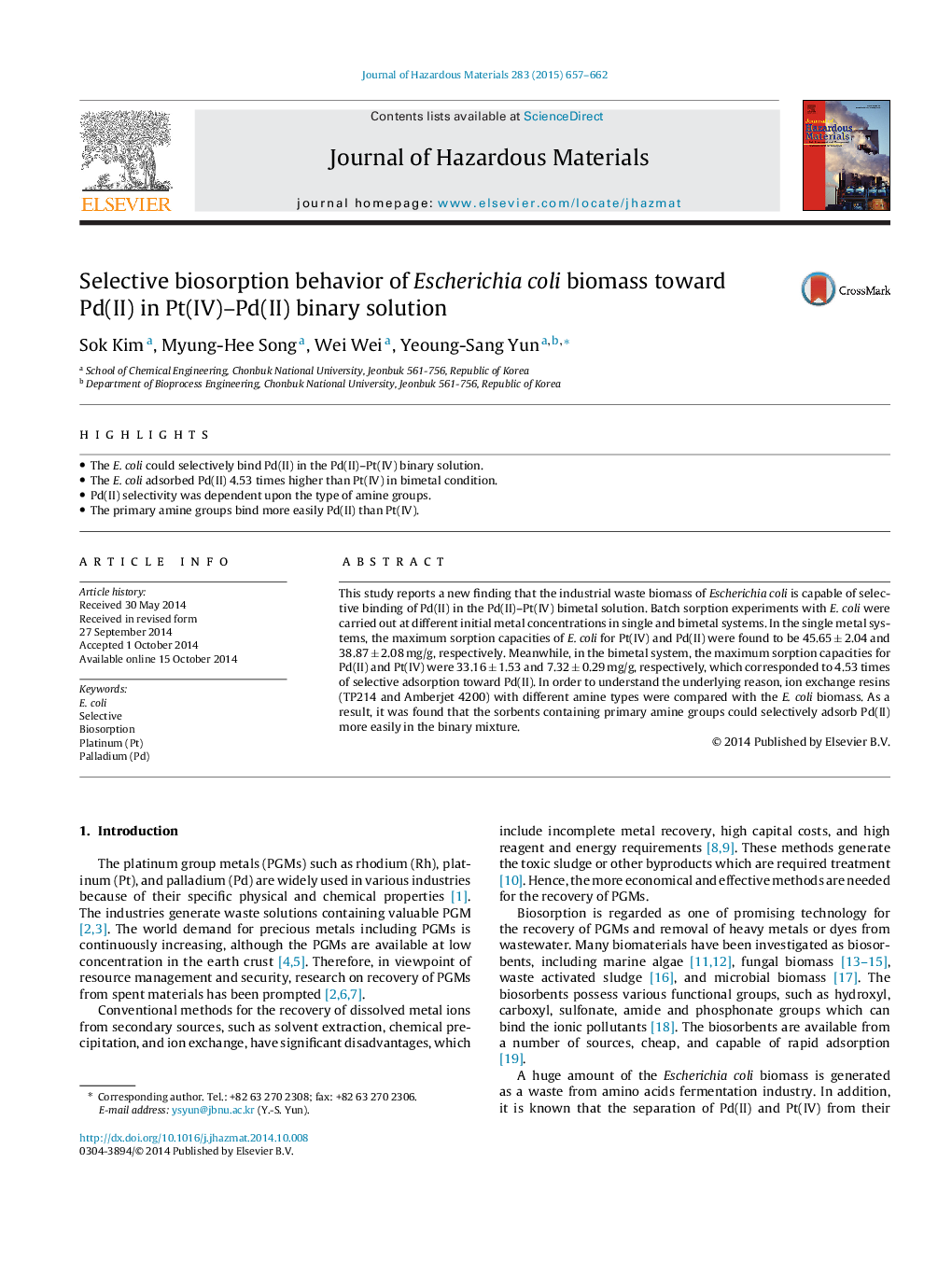| Article ID | Journal | Published Year | Pages | File Type |
|---|---|---|---|---|
| 576313 | Journal of Hazardous Materials | 2015 | 6 Pages |
Abstract
This study reports a new finding that the industrial waste biomass of Escherichia coli is capable of selective binding of Pd(II) in the Pd(II)-Pt(IV) bimetal solution. Batch sorption experiments with E. coli were carried out at different initial metal concentrations in single and bimetal systems. In the single metal systems, the maximum sorption capacities of E. coli for Pt(IV) and Pd(II) were found to be 45.65 ± 2.04 and 38.87 ± 2.08 mg/g, respectively. Meanwhile, in the bimetal system, the maximum sorption capacities for Pd(II) and Pt(IV) were 33.16 ± 1.53 and 7.32 ± 0.29 mg/g, respectively, which corresponded to 4.53 times of selective adsorption toward Pd(II). In order to understand the underlying reason, ion exchange resins (TP214 and Amberjet 4200) with different amine types were compared with the E. coli biomass. As a result, it was found that the sorbents containing primary amine groups could selectively adsorb Pd(II) more easily in the binary mixture.
Related Topics
Physical Sciences and Engineering
Chemical Engineering
Chemical Health and Safety
Authors
Sok Kim, Myung-Hee Song, Wei Wei, Yeoung-Sang Yun,
